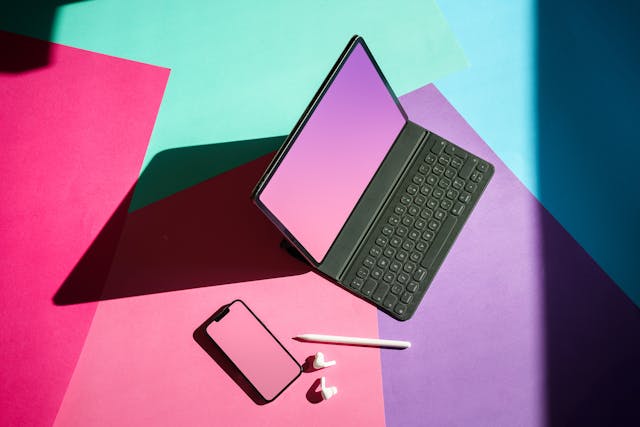Choosing the right PCs for your small or medium-sized business is an important decision. The right system can boost productivity, while the wrong choice may slow your team down and lead to costly upgrades. This quiz will help you understand what factors to consider when buying PCs for your business, from performance to security and beyond.
The answers are invisible, drag the lines below each question to see the hidden answers!
1. What is the first factor you should consider when buying PCs for your business?
- A) Price
- B) Processing Power
- C) Brand
- D) Design
Answer: B) Processing Power
Description: While price is important, ensuring the PC can handle the tasks your business requires is crucial. For most SMBs, processing power (CPU) directly affects how efficiently tasks are completed, making it a top consideration.
2. How much RAM is typically recommended for business PCs handling office tasks like document processing and browsing?
- A) 4 GB
- B) 8 GB
- C) 16 GB
- D) 32 GB
Answer: B) 8 GB
Description: For most small businesses, 8 GB of RAM is sufficient to handle daily office tasks efficiently. However, for more intensive applications like graphic design or data analysis, upgrading to 16 GB or higher may be necessary.
3. Why is it important to consider the type of storage (HDD vs SSD) in your business PCs?
- A) SSDs are more expensive
- B) SSDs provide faster performance
- C) HDDs last longer
- D) HDDs are more reliable
Answer: B) SSDs provide faster performance
Description: Solid-state drives (SSDs) are faster and more reliable than traditional hard drives (HDDs), making them ideal for business environments where quick access to data and speed are crucial for productivity.
4. How important is portability for your business PCs?
- A) Very important if employees travel frequently
- B) Not important at all
- C) Important only for managers
- D) Only important for home offices
Answer: A) Very important if employees travel frequently
Description: For businesses with remote or traveling employees, portability is key. Lightweight, compact laptops with long battery life can greatly enhance productivity on the go.
5. What kind of warranty should you consider when purchasing business PCs?
- A) Basic one-year warranty
- B) Two-year warranty
- C) Extended three-year warranty with support
- D) No warranty is necessary
Answer: C) Extended three-year warranty with support
Description: A three-year extended warranty that includes support is often worth the investment for small businesses. It ensures your PCs are covered for repairs and replacements, reducing downtime and maintenance costs.
6. Which operating system is typically preferred for business environments?
- A) Windows
- B) macOS
- C) Linux
- D) Chrome OS
Answer: A) Windows
Description: Windows is widely used in business environments due to its compatibility with a broad range of software, including office and productivity tools, making it the most common choice for SMBs.
7. How does the number of ports on a business PC impact its usability?
- A) More ports slow down the PC
- B) It doesn’t matter
- C) More ports allow greater connectivity options
- D) Fewer ports improve performance
Answer: C) More ports allow greater connectivity options
Description: More ports (USB, HDMI, Ethernet) enable greater flexibility to connect external devices such as printers, monitors, and peripherals, making daily operations smoother and more efficient.
8. How important is it to choose a PC with built-in security features for your business?
- A) Very important, especially for sensitive data
- B) Not important at all
- C) Important only for larger businesses
- D) It depends on the industry
Answer: A) Very important, especially for sensitive data
Description: Built-in security features like biometric logins and encryption are essential for safeguarding business data. For SMBs, protecting customer information and preventing data breaches should be a priority.
9. Should you consider energy efficiency when purchasing business PCs?
- A) Yes, to reduce long-term energy costs
- B) No, it’s not relevant
- C) Only for large offices
- D) It depends on the brand
Answer: A) Yes, to reduce long-term energy costs
Description: Energy-efficient PCs can help reduce operational costs over time. For SMBs, opting for energy-saving options lowers electricity bills and contributes to sustainability goals.
10. How often should small businesses plan to upgrade their PCs?
- A) Every year
- B) Every 2-3 years
- C) Every 4-5 years
- D) Every 6-7 years
Answer: B) Every 2-3 years
Description: Most businesses should plan to upgrade their PCs every 2-3 years to keep up with technological advancements, ensure compatibility with new software, and maintain efficiency.
Conclusion:
Purchasing PCs for your small business requires thoughtful consideration of various factors, including performance, security, and cost-efficiency. By understanding your business’s needs and the latest technologies available, you can make informed decisions that will support your operations and growth. Remember, the right PC investment can significantly boost productivity and streamline your workflow. Ready to upgrade your business’s technology? Take these factors into account, and you’ll be well-equipped to make a smart choice!
